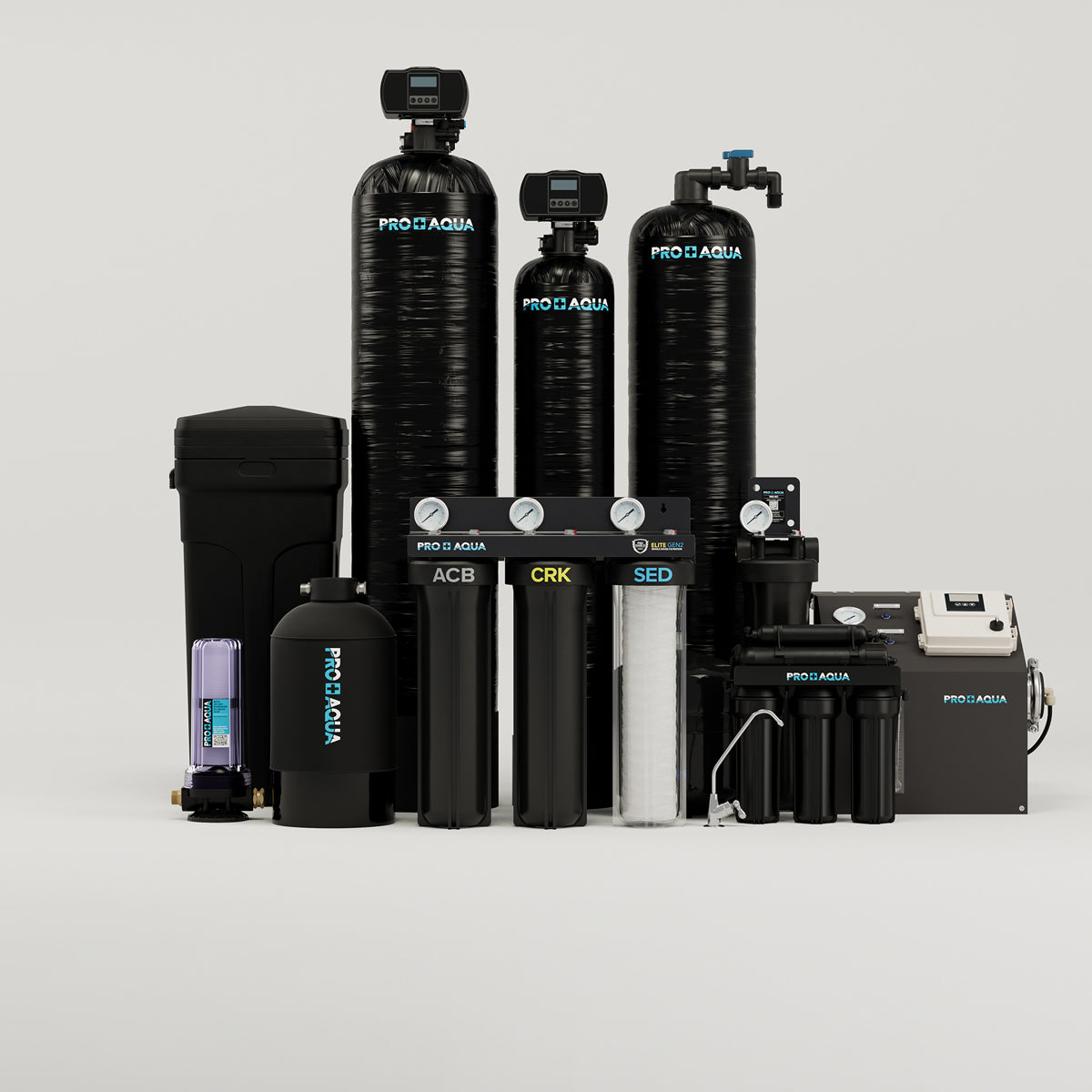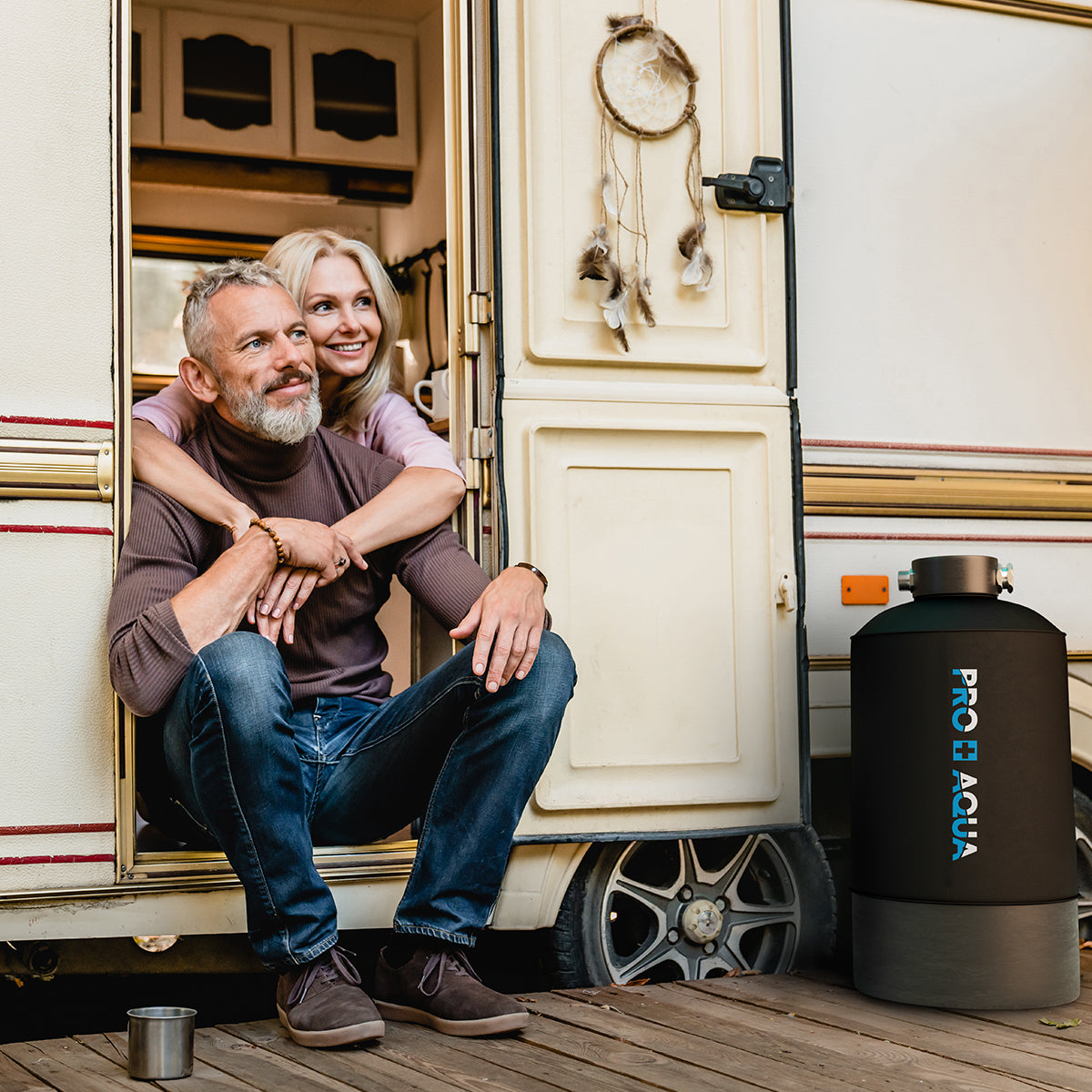TL;DR
- DI water is ultra-purified water that has had nearly all its mineral ions removed.
- It's commonly used in car washing, laboratories, manufacturing, cosmetics, and aquariums.
- While technically drinkable, it lacks essential minerals and is not recommended for regular consumption.
What Is Deionized Water?
Deionized water is water that has undergone a purification process to remove most of its mineral ions. The process removes both positively and negatively charged cations:
- Positively charged cations include calcium (Ca2+), magnesium (Mg2+), and sodium (Na+).
- Negatively charged anions include chloride (Cl-), sulfate (SO4^2-), and bicarbonate (HCO3-).
The result is a form of high-purity water that’s electrically non-conductive and free from dissolved salts. Note: While DI water is free of ions, it may still contain organic compounds or bacteria unless filtered further.
How Is DI Water Made? (Deionization Explained)
Deionization involves using ion-exchange resins that attract and hold onto charged particles. Two main types of resins are used:

Cation exchange resin: Replaces positive ions (like calcium or magnesium) with hydrogen (H+)
Anion exchange resin: Replaces negative ions (like chloride or sulfate) with hydroxide (OH-)
When these two ions combine, they form pure H2O. The process is often used alongside reverse osmosis (RO) or carbon filtration for extra purity.
What Is in Deionized Water?
Essentially, nothing—that’s the point! It contains:
- No dissolved salts
- No calcium, magnesium, or sodium
- No sulfates or nitrates
However, it’s not guaranteed to be sterile or free of microbes unless treated further with UV, ozone, or submicron filters.
What Is the pH of Deionized Water?
Freshly deionized water has a theoretical pH of 7 (neutral). In reality, it quickly absorbs carbon dioxide (CO2) from the air, forming carbonic acid. This can drop the pH to between 5.5 and 7.0.

DI water's pH can easily change based on its environment because it lacks buffering minerals.
Is DI Water Safe to Drink?
Technically, yes, but it’s not ideal for regular hydration. Why?
- Lacks essential minerals like calcium and magnesium
- May taste flat or metallic
- Can leach metals from pipes because of its high purity
Bottom line: DI water is not harmful in small amounts, but it's not intended as a drinking water source.
What Is Deionized Water Used For?
DI water is used wherever water purity is critical. Common uses include:
- Spot-Free Washing – Car washing, solar panels, window washing
- Laboratories – for experiments and cleaning equipment
- Electronics manufacturing – rinse water for circuit boards
- Aquariums – base water for mixing reef salt
- Pharmaceuticals and cosmetics – ingredient in formulas
- Steam irons and humidifiers – prevents scale buildup

What Is a DI Water System?
A DI water system is a filtration setup that includes deionization cartridges or tanks. These systems vary from small, point-of-use units to large industrial setups.
Types of DI Systems:
- Cartridge-based systems for residential and lab use
- Portable exchange tanks for high-volume needs
- Mixed-bed resin systems for higher purity
DI Water Density and Electrical Conductivity
DI water has a density of ~1.0 g/cm3, similar to regular water. However, it is extremely low in electrical conductivity, making it ideal for sensitive electronic and chemical applications.
- Conductivity: less than 1 microsiemens/cm
- Resistivity: ~18.2 MΩ·cm (in ultrapure cases)
Comparison: DI Water vs Other Purified Waters
|
Property |
DI Water |
Distilled Water |
RO Water |
|
Removes Ions? |
Yes |
Yes |
Yes |
|
Removes Organics? |
No (alone) |
Some |
Yes (most) |
|
Removes Microbes? |
No |
Yes (usually) |
No (unless UV) |
|
Safe to Drink? |
Not recommended |
Yes |
Yes |
|
Main Use Case |
Commercial/Lab/Industrial |
Home appliances |
Drinking water |
FAQs
What is deionized water used for?
Spot-free washing, lab work, electronics, aquariums, and cosmetics are common applications.
Can you drink DI water?
Yes, but it’s not recommended as your main water source.
What’s the difference between DI and RO water?
DI removes ions through resin, while RO uses membrane filtration to remove a broader range of contaminants.
Does DI water have a neutral pH?
Not always. It quickly absorbs CO2, often dropping to a pH around 5.5–6.5.
Is DI water sterile?
No. It must be filtered further to remove bacteria or viruses.
Final Thoughts
Deionized water is a highly purified form of water used in specialized applications that demand minimal contaminants. It’s great for science, industry, and sensitive electronics—but not your water bottle. If you’re looking to improve water purity at home, an RO system is a more balanced option.
Need ultra-clean water for your car wash, lab or aquarium? Check out PRO+AQUA Water Filter Systems to find a high-purity setup for your needs.







Leave a comment
This site is protected by hCaptcha and the hCaptcha Privacy Policy and Terms of Service apply.